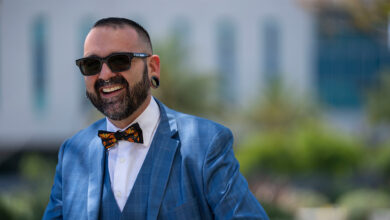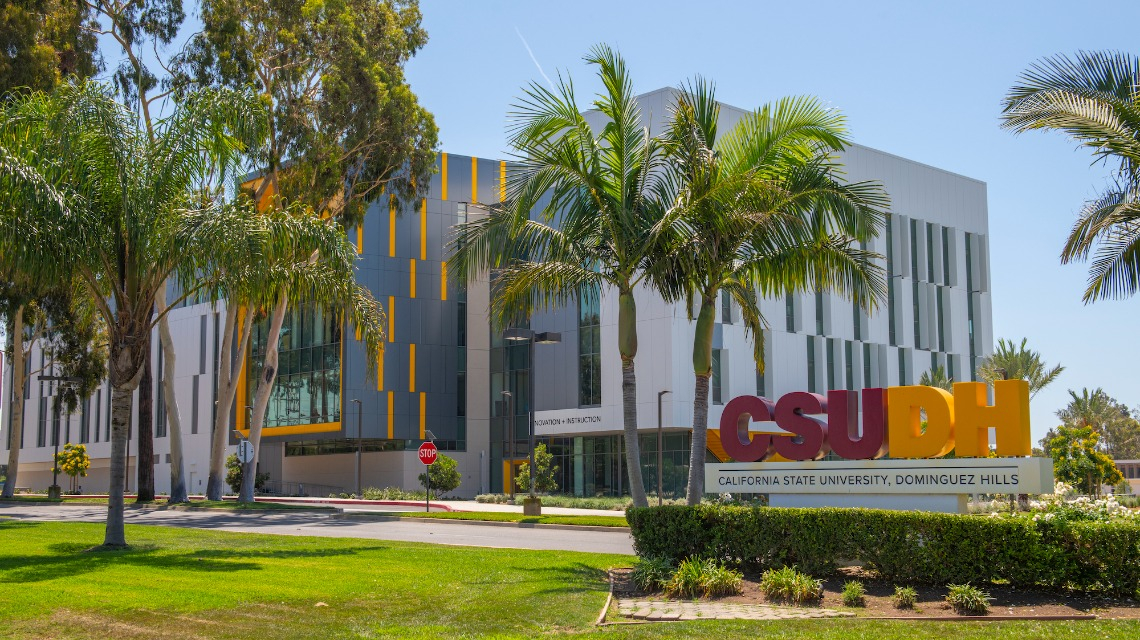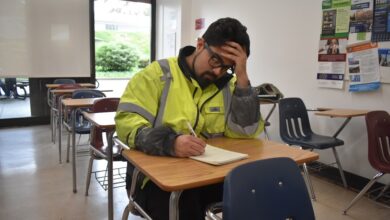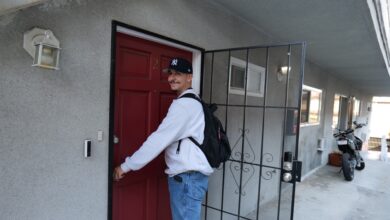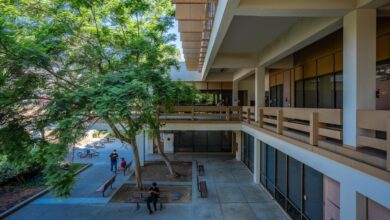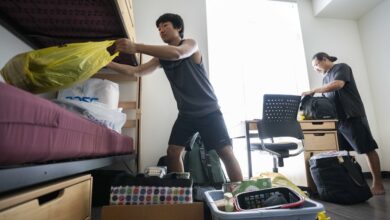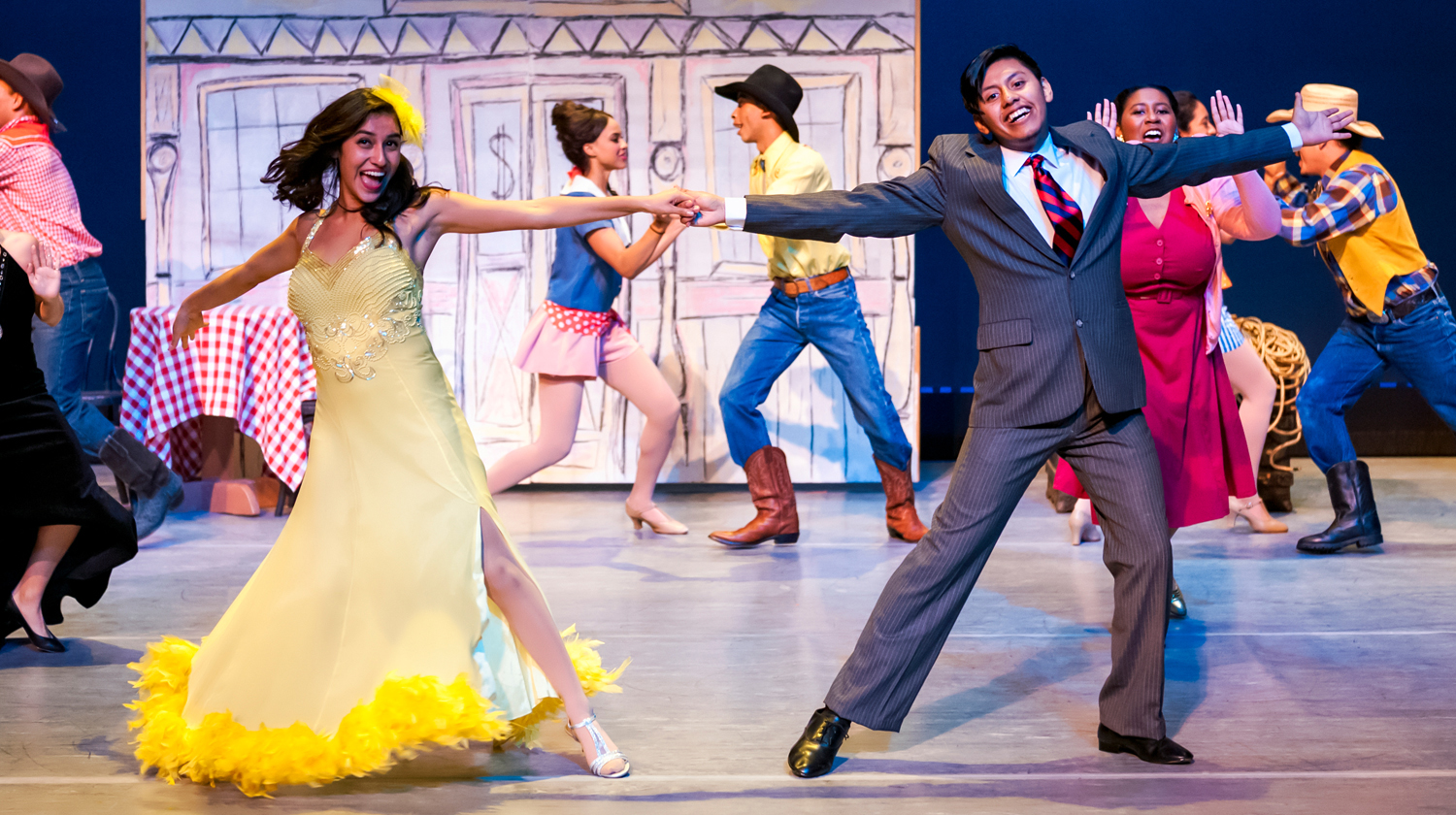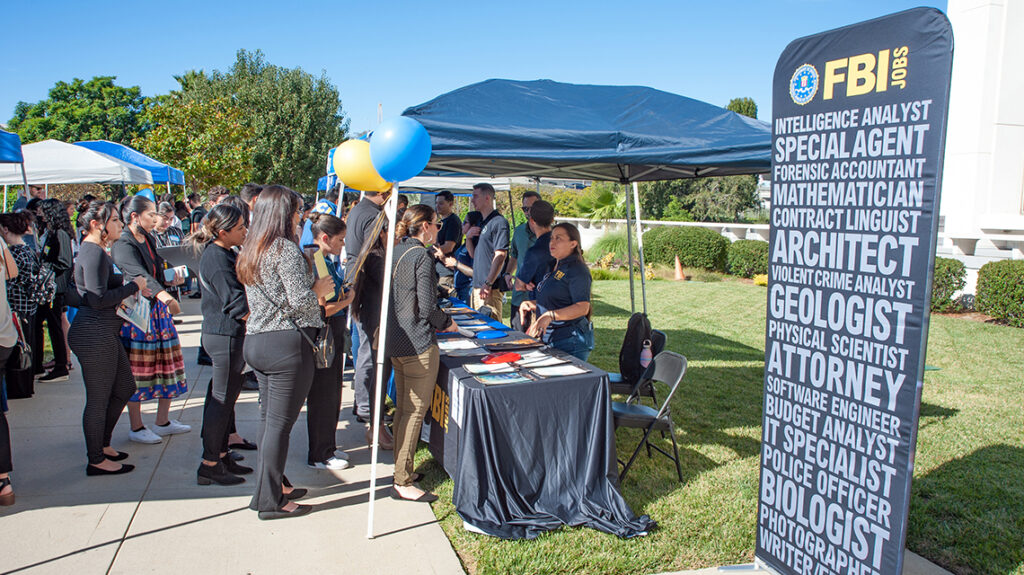
Emanuel Prince stood behind a throng of other college students and watched intently as two FBI agents behind a booth marked “Evidence Response Team” demonstrated how to test fabric for traces of blood.
Prince, a senior sociology major and Presidential Scholar at CSUDH, was one of a couple hundred students from 11 CSU and UC campuses across Southern California who were invited to learn about potential career paths at the FBI. Agents, analysts, and support staff explained how their accounting majors, foreign language skills, and even their passion for undersea diving could be put to good use to protect the nation.
The recruitment open house is part of a broad national initiative called the Beacon Project to boost recruitment of African American candidates to the bureau through partnerships with Historically Black Colleges and Universities.
Martice Hawkins is the diversity and inclusion coordinator for the Los Angeles field office and said this latest incarnation of the program “is part of Beacon 2.0, where we’re also reaching out to institutions that identify as Hispanic-serving and minority-serving.”
“The Beacon Project allows us to be more intentional and engage with students while they’re at the undergraduate level to build bridges,” Hawkins said.
Hawkins and others from the Los Angeles field office visited CSUDH over the summer and met with President Thomas A. Parham to discuss ways to expand the FBI’s recruiting efforts among schools with diverse student profiles. Parham said the Beacon Project would give CSUDH students an opportunity to consider careers in law enforcement that could prove to be mutually transformative.
“The program will help build rapport with communities of color and confront some of the assumptions people of color have about law enforcement agencies generally,” Parham said. “It will also allow the FBI to explain how its posture of engagement with culturally different people has changed from the historic ways their policies and practices negatively impacted black, brown, and other people of color.”
In his welcome to the students, Assistant Director in Charge Don Alway said the bureau has made significant progress in changing the culture of the institution, but that more work remains to be done.
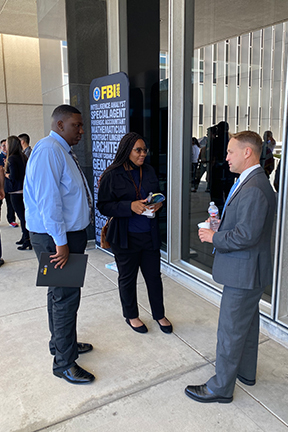
“There are few things that run across every aspect of what we do. Diversity is one of those things.” Alway said. “But there’s still a large percentage of the population that thinks they know what the FBI is like. Events like today show that the FBI is made up of all of us.”
For students like Prince and more than a dozen other Toros who joined him for the event, the message resonated.
“I really thought I had an idea what law enforcement was about, especially federal law enforcement. But this event has opened my eyes not only to the ethnic diversity at the FBI, but the educational diversity of all these agents and analysts,” Prince said.
Victoria Quevedo, also a senior at CSUDH, said she wants to know more about forensic accounting at the FBI. “They gave me a lot of good information, and it’s more interesting than I thought,” she said. “Now I know what the requirements are, which are not too far off from where I am right now.”
Michael Campos, a senior at CSUDH studying criminal justice administration, has all the information he needs. His father is a U.S. Marshal, and his mother is a retired police officer. His interest in law enforcement goes back many years.
“The FBI has always been a career path that I’ve been interested in following, particularly in forensic science or as a crime scene investigator,” Campos said. He added that he was surprised by the booth on Underwater Search and Evidence Response and might consider looking into that option in more detail after he graduates.
What really hit home for Campos was the message about diversity as he considers applying for an internship next year.
“Bringing knowledge and experience from many different cultural backgrounds can help you better understand and serve communities,” Campos said. “Diversity doesn’t just make an organization more equitable. It makes everybody safer.”

